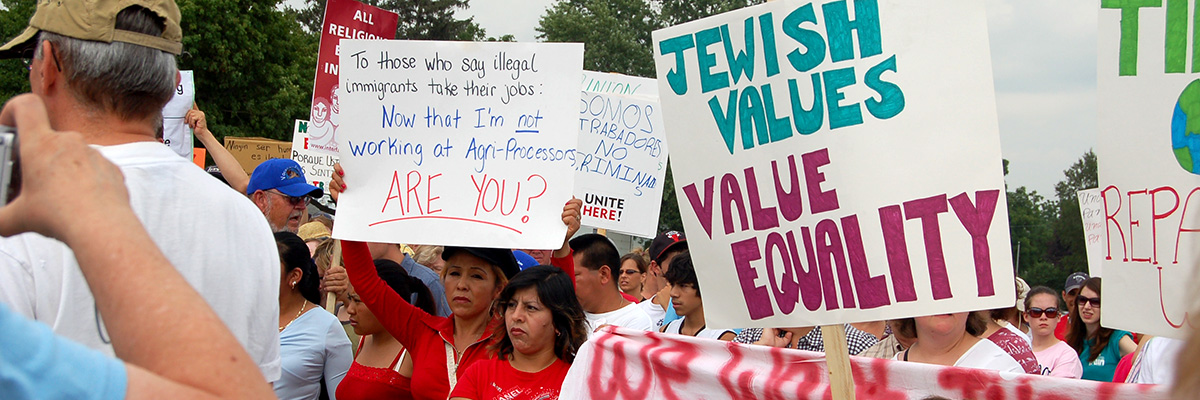

Share
The Staff of Jewish Community Action (JCA) has joined the emerging trend of non-profit workers forming unions. JCA workers joined OPEIU.
A staff mostly composed of younger organizers like JCA Community Organizer Jamie Kavanah, who uses they/them pronouns, observes that organizing non-profits also organizes millennials. Millennials are driving union campaigns all over the country moving past the perceptions that unions are only for custodial workers etc. For Kavanah, a union offers an infrastructure for the perspective of workers.
As community organizers they employ many tactics common in union campaigns. While training in organizing Kavanah realized that. “I remember one of the big takeaways for me was that rhetorically people who oppose unions will pretend that a union is an outside force, but the union is just a name for the commitment that you already have to your coworkers.”
“We made the decision to organize chiefly because we felt like it would bring JCA into better alignment with our values. We sort of looked around and said, okay, all of us are very pro-union people and we work organizing our communities and we see every day what the power is of people coming together to both support each other and hold each other accountable. Wouldn’t it be great if we were also doing that in a more formalized way in our workplace?”
The decision to form a union for Kavanah seemed like a natural progression. Kavanah’s father is a retired union electrician and while growing up their father was involved in the union. For the entire staff, unionizing was not a farfetched idea since staff members at partner organizations had already formed unions.
While organizing they were confident that management wouldn’t obstruct their efforts. While union campaigns can seem adversarial at JCA, “it was really a pretty amicable and easy conversation,” said Kavanah. “Some of our board members and management have worked in union organizing previously.”
Kavanah recognizes that at times unions have been a force of harm for trans, queer folks, women and people of color. Often unions reflect the types of bias or prejudice that exists in the larger society. However, Kavanah keeps in mind that, “a union is as good as you make it.”
“I think that we really have an opportunity here to make sure that what being a union means to us is that we are ensuring that everyone’s needs get met and that everyone’s identity has space. And that, you know, we’re using it as a vehicle to make sure everyone gets heard fairly, rather than using it as a vehicle to unite against anyone who is less represented than one group of us.”

